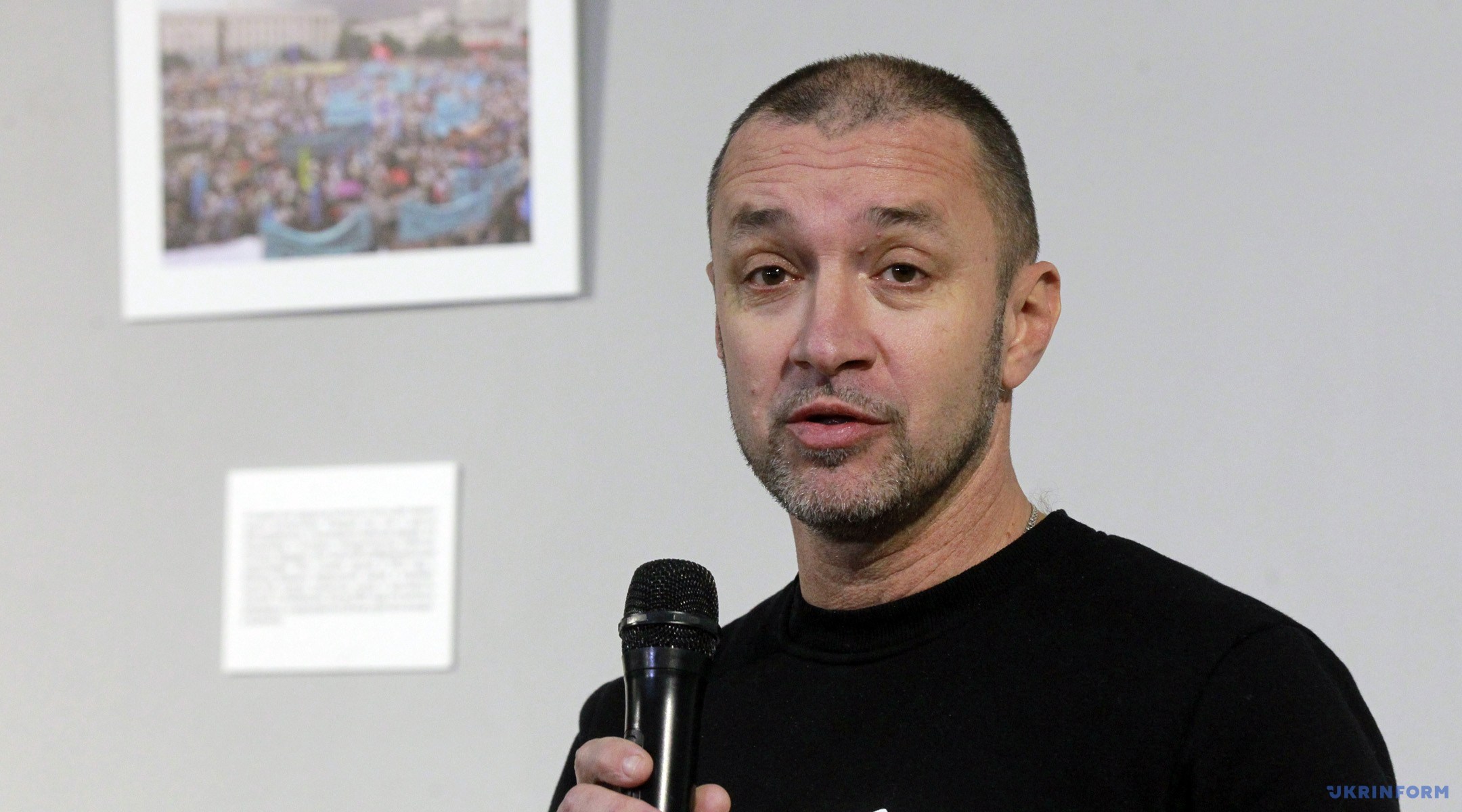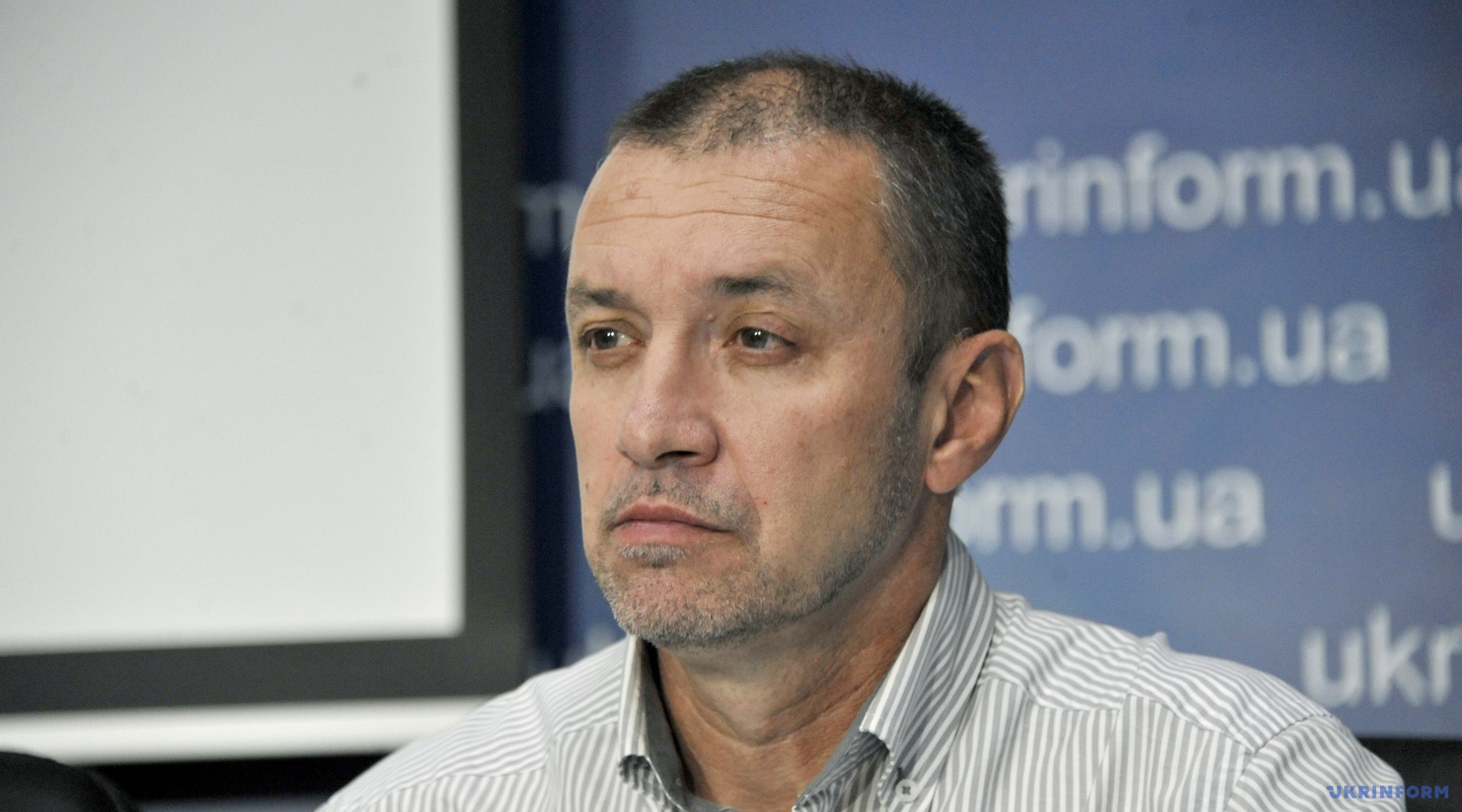Volodymyr Prytula is the Manager and Chief Editor of the Crimea. Realities project, implemented by the Radio Liberty Ukrainian service. He is a pro-Ukrainian activist who offered a fair coverage of the events in Crimea immediately after its takeover. As a result of the pressures and death threats, he was forced to move to mainland Ukraine. The Crimea.Inform magazine is talking to him about the first days of occupation, and the current events in the peninsula.

‘Waves of separatism used to be regularly reported in Crimea, but on each occasion they were reversed. At what point was it that you realised that for once the situation was no longer under the official control of Kyiv?’
‘It is important to note that no potential existed in Crimea for any internal political or inter-ethnic conflicts, or changes in the status of the peninsula. The level of separatism kept decreasing from year to year. For example, in 1994 the ‘Russia Block’ received 70% of the electoral vote, whereas in 2012 the ‘Russian Unity’ received 4% despite powerful information and financial support from Russia. At the same time, the local authorities, by every means possible, obstructed the pro-Ukrainian forces that were united around the Mejlis, and by far outran the Russian party at the election.
On 27 February, when the pro-Russian activists seized the State buildings in Crimea, I still did not realise the gravity of the situation rolling out in the peninsula – this only happened somewhat later, when I saw the deputies and the speaker of the Crimean parliament striding out to the militants: ‘small green men’. In addition, when Vladimir Konstantinov (collaborator, Chairman of the so-called ‘State Council of Crimea’ since 17 March 2014 – note) began talking about convening a session, it became clear that significantly serious processes were taking place.
Plus, all this was occurring against the backdrop of a power vacuum in Ukraine, at a time when the President had fled, had stopped carrying out his obligations as the Head of State and left the territory thereof; and when the Ukrainian parliament became bogged down in an interminable debate over the formation of a new government.
Time was being wasted. It was therefore clear that the situation in Crimea was critical.’
‘What were the problems that journalists faced at the beginning of the occupation?’
‘The Russian agencies began by taking over the TV transmitters, switching off Ukrainian TV channels, thus making the operation of the independent media impossible. They also began intimidating journalists by beating, kidnapping, and imprisoning them. They also gave serious attention to intimidating social activists who were streaming or filming Crimean events and putting their videos on social networks. They deprived Crimeans of independent information, and made attempts to block any leaks from Crimea to the audience in Ukraine, Russia and other countries. All this took place with support from the Russian military and pro-Russian paramilitary powers. The biggest problems encountered during the first few months following occupation were those relating to the security of journalists and their inability to deliver information.
At the same time Reshat Ametov, a Crimean Tatar activist abducted on 3 March 2014, was found dead. The fate of the pro-Ukrainian activist and publisher Andriy Shchekun kidnapped on 9 March by the ‘Crimean self-defence’, the same as that of several other social mobilizers and journalists was not then yet known. Therefore, when the FSB officers were saying to Crimean journalists: “You’ll face the same consequences”, this of course influenced their decision regarding whether or not to continue their work.’

‘Does the Crimea. Reality project succeed in working together with local journalists in the present circumstances?’
‘Almost 30 journalists in Crimea have, during the occupation period, refused to cooperate with Crimea. Reality, Also, under pressure, some of them have given up journalism. About the same number of journalists were forced to leave Crimea, following threats and prosecutions by the Russian authorities and security services.
Nevertheless, the information platform for Crimeans is still operating. In addition to three websites, we are running a radio project and broadcasting on the medium waveband in partnership with the National public radio company. We are also providing 24-hour FM broadcasts for the northern regions of Crimea. In addition, we have two TV programmes about Crimea. One of them is broadcast in the Ukrainian language, targeting the Ukrainian audience, and the other one is broadcast in the Russian language in the Current Time International channel, and airs on more than 20 countries in Eastern and Central Europe and Central Asia. It can also be watched in Crimea.
Here I must mention our author Mykola Semena, a well-known Crimean journalist, who, with his analytical materials, began contributing to our project on the situation in Crimea from the very first days following the project launch. He immediately appeared on the radar of the Russian security services. His computer was hacked, and they obtained what they assert to be the evidence of his calls for the violation of the territorial integrity of Russia. Mykola has been sentenced to 2.5 years on probation, with a ban on public activities including that of a journalist. Radio Liberty/Radio Free Europe views this as a violation of Human rights; the right to disseminate information, and freedom of expression.’
‘Do you have any feedback from the residents of annexed peninsula?’
‘Being under pressure, together with the moral pressure exerted by the Russian power in Crimea, a large number of residents are afraid of speaking out. They are even apprehensive of putting their “like” on a post and distributing a material that attracted their interest, because of running the risk of being arrested and jailed for such actions. At the same time many of them are writing to us and drawing our attention to some specific economic and social issues, or problems with property, and the respect of the right to private property, as a large portion of both State and private property alike has been nationalised in Crimea. People have been deprived of their houses and land, under the pretext of State necessity: the construction of the Kerch Strait bridge, of the Taurida federal highway, etc.
We have also been asked to cover those issues that the Crimean and Russian mass media are not writing about. These, among others, are searches, arrests, detentions, and court proceedings against residents. People are complaining of the low wages, pensions and retirement benefits, also the ever-rising prices in Crimea, and the decreasing numbers of tourists. They are not satisfied with logistics, because it is difficult for them to travel to mainland Ukraine, and equally difficult to reach the neighbouring Russia.’
